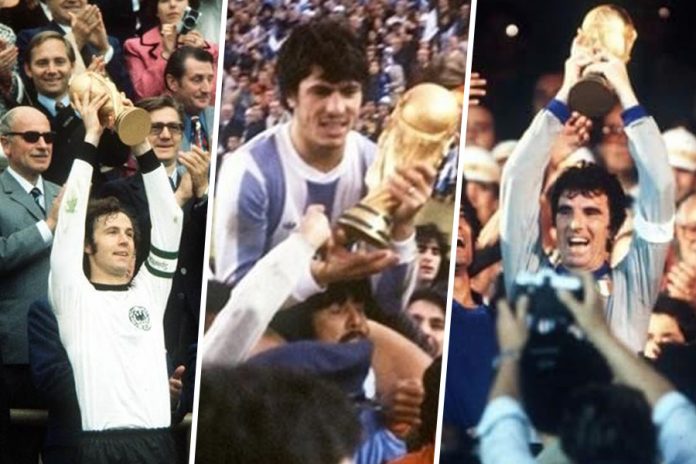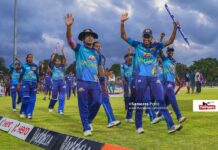During the late 1950’s and the early 1960’s, the world stage was dominated by the Brazilians.
FIFA World Cup – Journey through History (1962-1970)
The previous two articles featured the beginning and the early years of the FIFA World Cup. Since its
Having won their first title in 1958, they continued their form to the 1962 tournament held in Chile, winning consecutive titles. The inventors of the game England, finally tasted victory in 1966 at the final held in Wembley.
Having been knocked out from the first round during the 1966 edition, Brazil in 1970, fielded arguably the greatest national team the game has ever seen. A team spearheaded by Pele and Jairzinho, comprised of other key players such as Tostao, Rivelino and Gerson who were also at the peak of their respective careers.
This champion outfit, led by Carlos Alberto, enthralled the world with their mesmerizing attack force, reaching the peak of the game. Mario Zagallo’s men remained unbeaten throughout the tournament and also won every game in the qualifiers.
It was a fitting finale for Pele who ended his world cup career with three titles, while the Brazilians earned the opportunity to keep the Jules Rimet in perpetuity.
West Germans overwhelm ‘Total Football’ – 1974

The Dutch team guided by Rinus Michels, were the favourites for the title as West Germany hosted the World Cup for the first time in 1974. Nine venues hosted matches. During the group stage, against West Germany, Carlos Caszely of Chile became the first player to be sent off in a World Cup game.
The Dutch demonstrated ‘Total Football’ techniques, pioneered by their local club Ajax, in which specialized positions were abolished for the outfield players as individual players became defenders, midfielders or strikers as the situation required. Scotland was knocked out on goal difference despite being unbeaten during the group stage.

Yugoslavia trounced Zaire 9-0, equalling the record for the highest margin of victory set by Hungary against South Korea in 1954. In one of the most politically charged matches of all time, West Germany met East Germany at Hamburg, where the East Germans emerged victorious 1-0, courtesy of a 77th minute strike by Jürgen Sparwasser.
The incumbent Ballon d’Or winner Johan Cruyff led the Dutch attack in their 4-0 second round thrashing over Argentina. Later, the Argentines were beaten again by Brazil 2-1 on a scrappy affair.
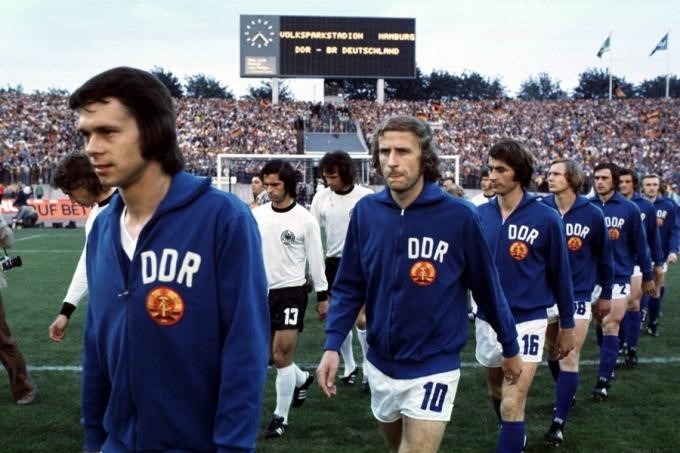
In the second round, West Germany, with a solitary goal by Muller won against Poland in the deciding group game, sending them to the finals. Meanwhile, Netherlands beat defending champions Brazil 2-0 in their decider. Poland later triumphed against Brazil to win the third place.
West Germany faced Netherlands at the final in Munich on July 7th, 1974. Franz Beckenbauer led the home team, while Cruyff headed the ‘Total Footballers’. Despite an early penalty by Johan Neeskens for the Dutch, the West Germans came back to win 2-1 with goals by Paul Breitner and Gerd Muller.
This was the first time where defending European champions also won the World Cup title. Germany’s win was again similar to their triumph in 1954, where they lost a group game and couldn’t maintain their unbeaten status as other World Cup winning teams.
The new FIFA World Cup trophy designed by Italian artist Silvio Gazzaniga was handed to the winning team of West Germany.
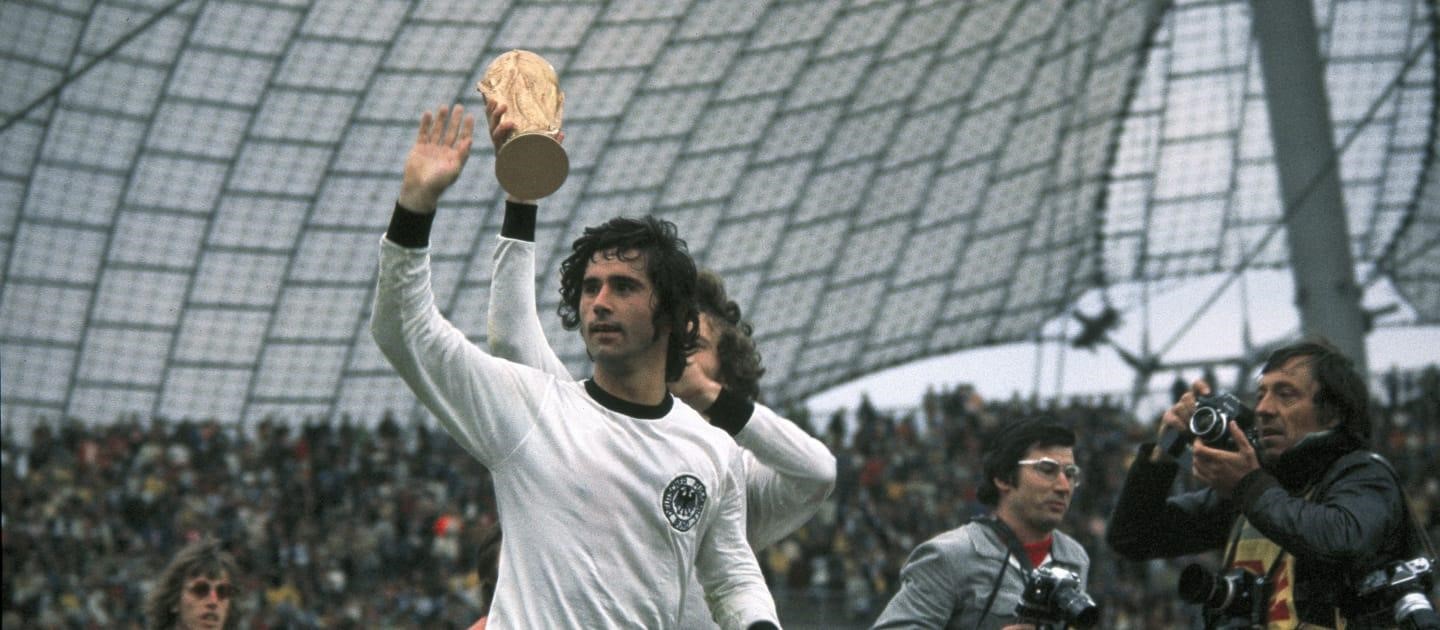
Poland’s Grzegorz Lato led the tournament with 7 goals, while Gerd Muller became the all time top scorer in the World Cup with 14 goals only to be surpassed by Ronaldo and Miroslav Klose later.
Gunter Netzer became the first player to be a part of a World Cup winning side playing for a club outside his home country. He was playing for Real Madrid at the time. The tournament became also became the last to feature no extra time matches.
Argentina reaches the pinnacle in a confetti-sprinkled ‘Monumental’ – 1978
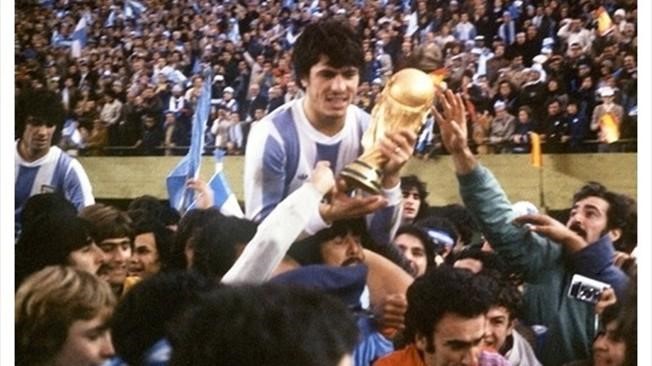
It was the longest wait for successive finals for a team, as passionate Argentine fans gathered at Estadio Monumental in Buenos Aires on June 25th to taste victory at a final after 48 years.
On their previous appearance in a final in 1930 ended in a 4-2 lost to Uruguay. As Argentina hosted the 1978 edition, games were held in six venues across five cities. The military dictatorship and the ongoing ‘Dirty War’ in the country spread controversy, while teams were initially hesitant to participate in the tournament.
During the group stage, Tunisia became the first African team to win a match at a World Cup as they beat Mexico 3-1 in their group fixture. The hosts were drawn in a comparatively difficult group, along with France and Hungary.
Dutch player Rob Rensenbrink scored the 1000th goal in World Cup history during their game against Scotland. However, the Scottish emerged victorious 3-2.
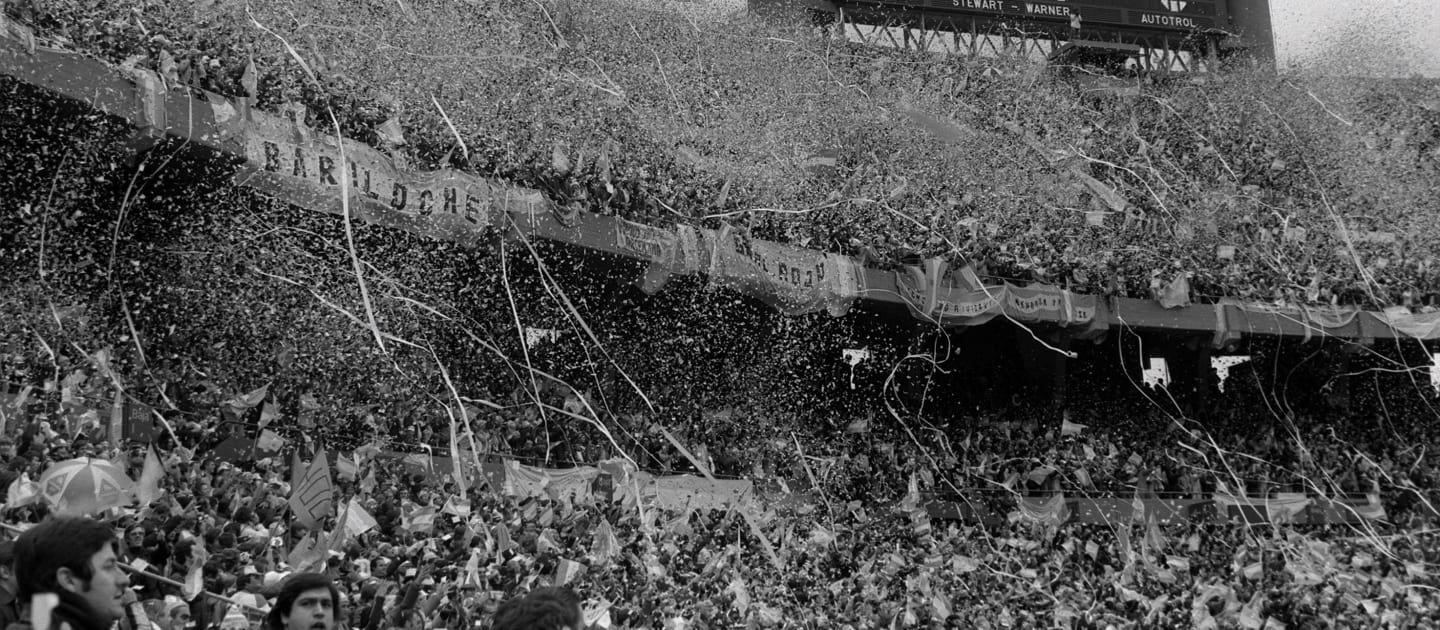
In the last game of the second round, Brazil’s 3-1 win over Poland, left Luis Menotti’s Argentine outfit to ensure a four-goal winning margin against Peru to qualify for the finals ahead of Brazil.
Eventually, they thumped Peru 6-0 at Rosario with goals by Mario Kempes, Alberto Tarantini, Leopoldo Luque and Rene Houseman. Unbeaten in their second round, the Netherlands qualified from their group to meet hosts Argentina in the finals on 25th June 1978.
The Dutch, who tasted defeat at the hands of West Germany four years ago, were determined to win this time. However, yet again they were forced to deal with a home team at the final hurdle.
After Kempes’ first half goal and a response by Dick Nanninga with 8 minutes to go, the scores were levelled 1-1 at full time. As the game reached extra time, subsequent goals from Kempes and Daniel Bertoni secured a 3-1 win for the hosts.

The ‘El Monumental’ was swamped with snowstorms of tickertape and shredded blue and white paper as skipper Daniel Passarella hoisted the trophy, bringing delight to a nation suffering from political uncertainty.
Passarella, took the captain’s armband, as their regular skipper Jorge Carrascosa quit the national team few months prior to the tournament. At 25 years and 1 month, Passarella still remains the youngest captain to win a World Cup. With a height of 1.73 and 1.74 metres, Passarella and Luis Galvan is the smallest centre-back pairing to win a World Cup as well.
Known as ‘The Embrace of the Soul’, an iconic picture was captured when a fan named Victor Dell’Aquila who was a double amputee invaded the pitch to embrace his heroes Ubaldo Fillol and Alberto Tarantini.

Amidst Argentina’s celebrations, it was heartbreak for the Netherlands, as they were forced to settle as runners-up for the second tournament running. Mario Kempes with 6 goals won the Golden Boot as well as the Golden Ball for the best performance.
Italians discover ‘Gold’ on Spanish Soil – 1982

Spain held the competition for the first time in 1982, while the tournament was expanded to 24 teams. Also for the first time, it featured teams from all six confederations with New Zealand appearing for the first time from Oceania. Seventeen venues were arranged in 14 cities.
The group stage saw one of the upsets, as newcomers Algeria beat West Germany 2-1. Following Algeria’s 3-2 win over Chile, during the final group game between Germany and Austria, both teams knew that a German win by 1 or 2 goals would qualify both teams.
This resulted in a highly controversial game, where both team kicked the ball aimlessly for the rest of the match after West Germany scored an early goal, much to the fury of the crowd. Following the event, FIFA introduced a revised system at subsequent World Cups in which the final two games in each group were played simultaneously.

Defending winners Argentina lost to Belgium but saw both teams qualifying at the expense of Hungary and El Salvador. Hungary although failed to make it to the next round, beat El Salvador 10-1, equalling the highest margin of victory in a World Cup game.
Northern Ireland beat hosts Spain 1-0, while at the age of 17 years and 41 days, Norman Whiteside broke Pele’s record for the youngest appearance in a World Cup, with his debut against Yugoslavia.
During Argentina’s clash with Italy, 23 fouls were committed on Diego Maradona, the most number of fouls on a single player in a World Cup game.
It also became the first tournament to feature a penalty shootout, as the semi final between West Germany and France went into penalties after a classic 3-3 deadlock. The Germans overcame the French and entered their fourth final.
A stunning Paolo Rossi hat-trick secured a thrilling 3-2 win for Italy against Brazil in the second round. Captained by Socrates and with an attack led by arguably the best player at the time, Zico, Brazil were the favourites to win the title. After scoring 10 goals in their 3 first round games, they crushed defending champions Argentina 3-1 before falling short to Italy.
Tele Santana’s men remain one of the greatest teams not to win a World Cup. For Italy, Paolo Rossi continued his form with a brace against Poland in the semi-final to claim a spot in the final.

The majestic Santiago Bernabeu in Madrid hosted the final between the two teams on 11th July 1982, with both sides seeking for their third crown.
Italy emerged victorious by convincingly beating West Germany 3-1, earning them their third title and a triumph after 44 years. Despite failing to win a single game in their group stage, the Italians managed to record wins against three former champions, Argentina, Brazil and West Germany en route to their victory.
Their 40-year-old captain, Dino Zoff became the oldest winner and the first ever goalkeeper-captain to lead his side to the ultimate prize since his compatriot Gianpiero Combi in 1934.

Paolo Rossi who scored six goals, won both the Golden Boot and Golden Ball awards, becoming one of only three players to win all three major awards (World Cup, Golden Boot, Golden ball) in the same tournament, while the others being Garrincha (1962) and Mario Kempes (1978).
>> For more World Cup News Click Here <<

